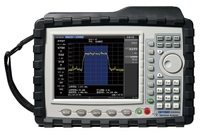A young test and measurement company with the backing of a major Chinese test player is aiming to expand its reach beyond cable to become a bigger player in the U.S. test market for wireless.
Tianjin Deviser Electronics has been operating in China for about 25 years, offering a variety of wired and wireless test solutions to the domestic market there as well as the international market. The company claims to have an 80% market share in the Chinese market, and said it has local distributors in more than 100 countries. Deviser Electronics now has a joint venture partnership called Deviser Instruments that began operating about a year ago and is making an official launch of wireless network testing equipment this week.
Privately held Deviser Instruments is headquartered in San Jose, Calif., and because it is privately held, does not disclose employee headcount or revenue. The company’s website indicates that Deviser as a whole has served as an OEM supplier of test equipment to cable companies in the Americas for about 12 years, and garnered some initial recognition late last year in the cable industry and was included in Broadband Technology Report’s BTR’s Diamond Technology review program.
Mike Tolaio, VP of sales and marketing for Deviser Instruments, said the company views wireless network sites as a point of convergence for both wired and wireless technologies, and aims to provide the instruments necessary for the myriad types of testing needed at such sites.
“In order to properly install, maintain and troubleshoot [wireless] networks, contractors and network operators require a broader test set than ever,” Deviser maintains. “This leads to increased equipment needs, acquisition, training and service costs.”
Tolaio said the company’s products are aimed at mobile operators’ operations teams and tower crews, contractors and installers. He said that Deviser is addressing several major test-related trends that it sees happening in the industry: interference issues; proliferation of distributed antenna systems and remote radio heads that mean more fiber at cell sites; and the pressure to reduce capital and operating expenses.
“Network operations groups are under incredible pressure to not only deploy sites, but keep them up and running while managing the existing legacy sites at the same time,” said Tolaio, adding that network operations groups are simultaneously seeing their operating margins being squeezed.
The company is exhibiting its new Profiler line of handheld test equipment at the IWCE show in Las Vegas this week, including its SpectrumProfiler models of spectrum analyzers, its SiteProfiler RF/optical cable and antenna analyzers for doing traditional RF sweep testing as well as fiber testing.

“Interference is not going to go away any time soon, particularly in high data-rate networks that require clean RF environments,” said Tolaio. The SpectrumProfiler line is Deviser’s solution in that area. Tolaio said that it can detect bursty signals with a duration of as little as 250 microseconds as well as enable the detection and identification of potential interfering signals that are next to or underneath the primary signal, which he said is useful in spectrum refarming situations and when, for example, GSM and LTE are combined at one site on a frequency band.
Tolaio said that Deviser Instruments, while a relatively new player, is going to be able to leverage Deviser Electronics’ experience in testing in order to address what it sees as the four main testing pain points within wireless networks: the RF/coax intersection, fiber optics/fiber to the antenna, Ethernet backhaul and the RF environment. Tolaio said that Deviser’s instruments are also particularly fast, with the SiteProfiler providing a fault location sweep speed of 1.15 milliseconds.

